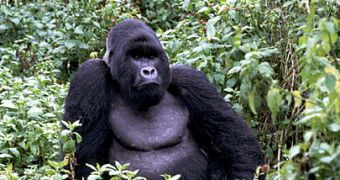Working on the assumption that both ordinary folks and the people running SOCO (i.e. a UK-based oil and gas exploration company) are well familiar with the devastating effects of the rather recent oil spill in the Gulf of Mexico, the WWF now asks that said company immediately quit its plans to go looking for oil in the Virunga National Park.
This is not the first time when we reported on this issue. Thus, not very long ago, we pointed out that UK's government did not really approve of SOCO's plans for this World Heritage Site either.
Since British high officials had little success in convincing both SOCO and the government of the Democratic Republic of Congo to let go of its plans to engage in oil and gas exploration in these regions, the World Wildlife Fund (WWF) decided to see if perhaps its plea concerning this issue would be given due consideration.
Commenting on SOCO's plans for this National Park, the Executive Director of Conservation for WWF, Lasse Gustavsson, made a case of how, “SOCO must stop its plans to drill in Africa's first ever World Heritage Site or it could lead to a catastrophic impact on local livelihoods and the environment.”
Furthermore, “Virunga is too important and too vulnerable to be put at risk by the oil industry. We have learned the hard way in the Gulf of Mexico about the environmental and financial costs of oil exploration in sensitive areas.”
The official website for the World Wildlife Fund explains that, for the time being, there are only two populations of mountain gorillas left in the wild, and that one of them lives in the Virunga National Park.
As well as this, oil and gas exploration in this region stands to affect the natural balance of Lake Edward, on whom roughly 30,000 local fishermen rely in order to make a living.
Therefore, it is quite likely that, should the oil and gas industry also encompass these regions, conflicts with local communities will be quick in emerging.
“Many people in the area have incomes and live thanks to the fish from Lake Edward and we fear that petrol will bring pollution and more conflict in our region,” explained one community leader.

 14 DAY TRIAL //
14 DAY TRIAL //